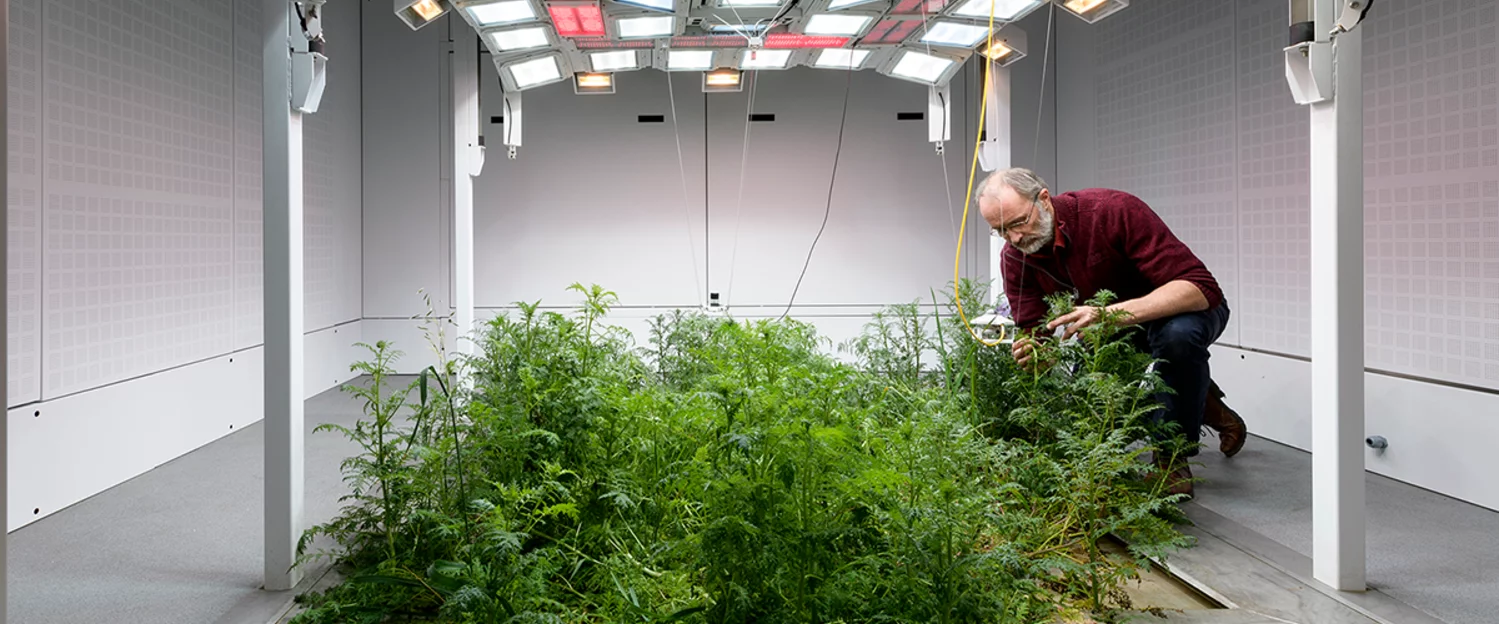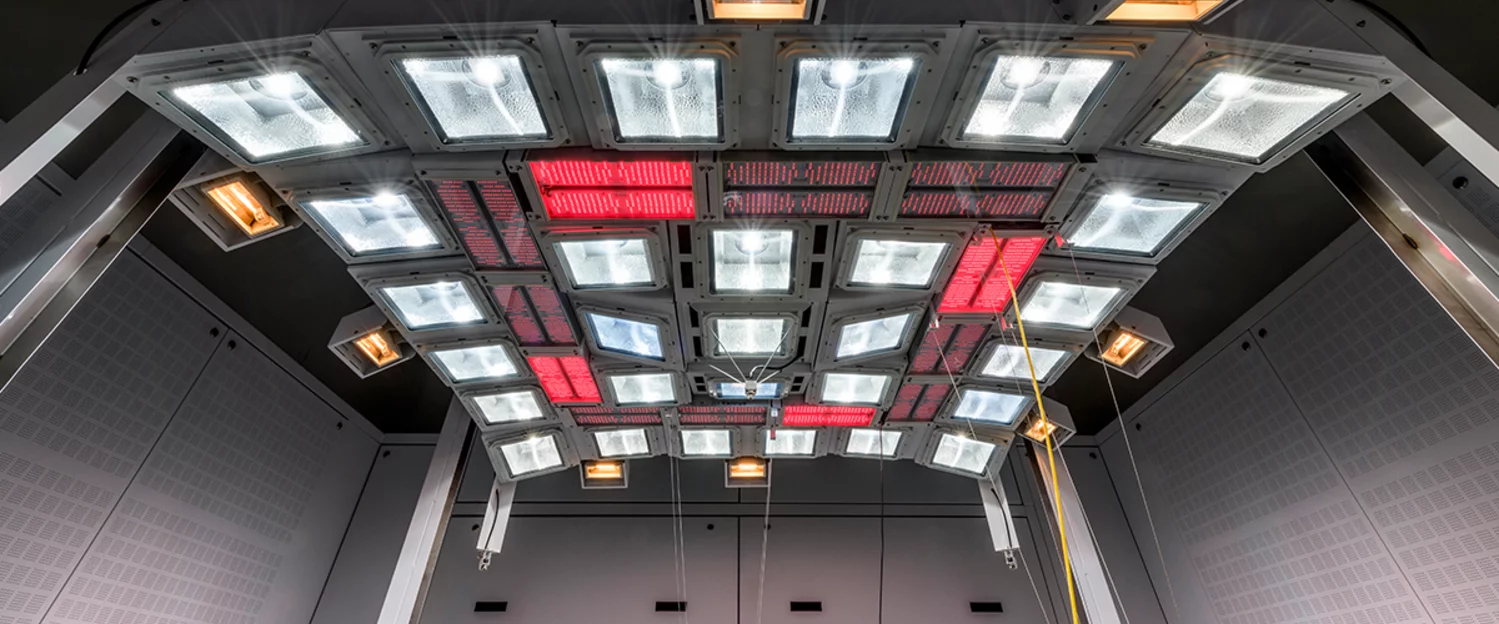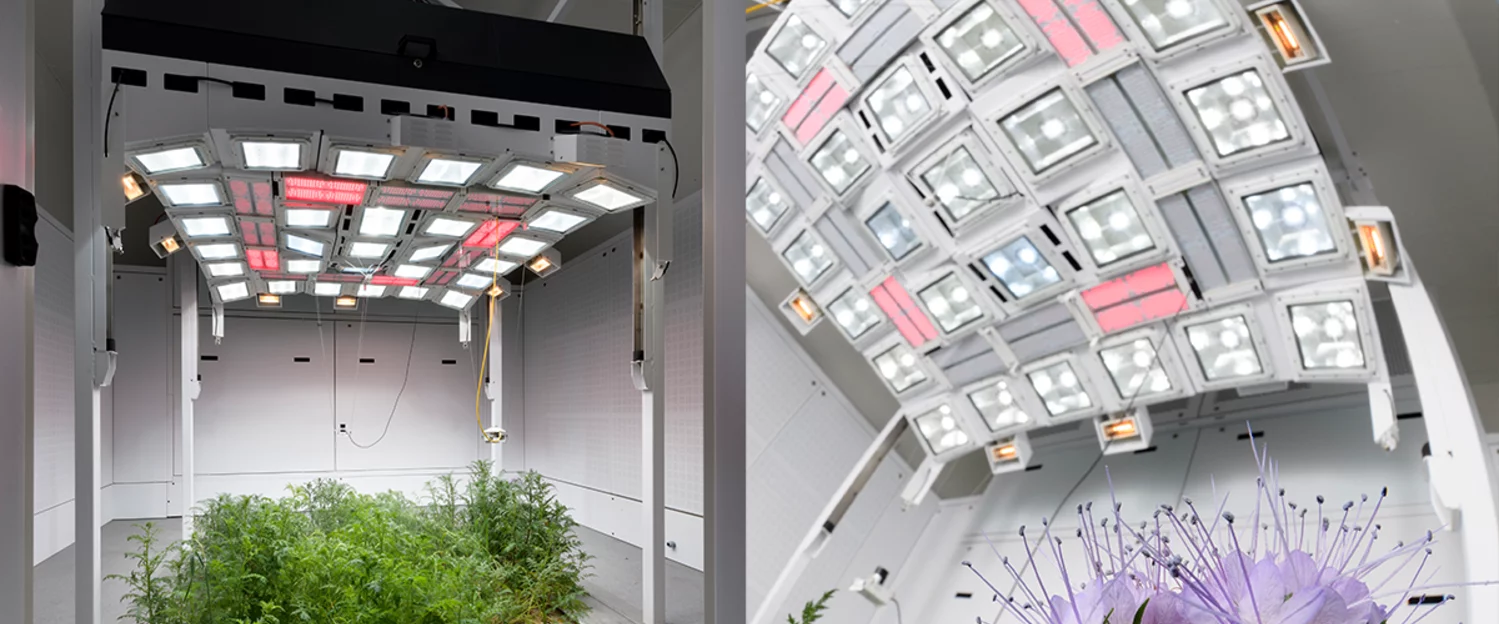The University of Liège, Gembloux, embarked on a journey to enhance its plant growth technology, recognising the critical role lighting plays in simulating real-world conditions within plant growth chambers.
Plant growth chambers offer tailored environments for plants to thrive in, allowing researchers and growers to play the role of pragmatic caretakers, tweaking temperatures, humidity and lighting to meet plants’ demands. Researchers can discover more about the relationship between technology and biology, and how they can harness their findings to advance our understanding of plant biology, optimise crop yields and develop sustainable practices. All in all, plant growth chambers provide a fascinating insight into the secrets of the plant world.
The magic of these chambers is all about finding effective light sources for mimicking real-world conditions. However, as new legislation shapes the landscape and some light sources become unavailable, the quest for sustainable and efficient lighting solutions has become paramount.
LED technology is rapidly becoming the unsung hero of the plant growth world and is shaping the landscape of modern agriculture. LEDs offer many advantages compared to other light sources, and highlight the pivotal role of innovative lighting technologies in maximising the productivity and success of plant growth chambers, and the future of agriculture.
The Problem
The evolution of plant growth technology is exemplified in a project undertaken by Weiss Technik UK for the University of Liege, Gembloux in 2018. The project involved the design and build of a specialised controlled environment facility, requiring a chamber capable of simulating natural growth conditions. This was to facilitate an in-depth exploration of plants, animals and microbioata in the agricultural and natural ecosystems models. In particular, the focus was on studying the impact global warming has on the physiology of field crops and exploring interactions with the biotic and abiotic environment.
We originally opted for light-emitting plasma (LEP) lamps to meet the challenging lighting specification. With a reputation of being an efficient, full spectrum light source, LEP presented a good representation of visible light, crucially incorporating UVA radiation. However, it became apparent that the spectral requirements, particularly in the red, far-red and infra-red domains, necessitated supplemental sources. To address this, monochromatic LED sources were required to supplement the red and far-red light, and tungsten-halogen lamps for the necessary infra-red heat.
Fast-forward 5 years later, we needed to re-evaluate our initial solution. Recent advancements in LED technology have overtaken the primary LEP light source on all fronts, rendering it obsolete as companies switch to more viable LED alternatives.
The Solution
ULG’s problem is to be tackled head-on through the development of the Ecotron chamber; providing them with two new plant growth chambers by late 2024. The Ecotron chamber is strategically designed to incorporate LED technology, which can emulate the spectrum and intensity of light emitted by the original LEPs, providing a viable alternative whilst also overcoming the limitations associated with LEP lamps.
The new Ecotron system incorporates a number of different light sources: daylight LED modules, UV-A LED, far-red LEDs and Tungsten halogen lamps. By combining these lamps together, the resulting spectrum is within the tolerances allowed by the specification.
By strategically leveraging LED technology, we can not only overcome limitations associated with traditional lighting sources but, can implement a new era of sustainability and efficiency. Whether replicating natural growth environments or ensuring long-term durability, these advancements signal a broader commitment to addressing global warming challenges and investing in the evolving landscape of controlled environments and their sustainability.
LED grow lights not only represent a leap forward in controlled environment solutions, but also embodies our commitment to sustainable and efficient practices in the realm of plant growth. This project signifies not just technological advancement, but a brighter, greener tomorrow for plant growth research and agriculture.
Advantages of LED Technology:
In a world where sustainability and efficiency are imperative, LED technology unveils a spectrum of benefits that promise to redefine the way we cultivate crops and envision the future of sustainable production.
Lower energy consumption: Compared to traditional light sources, LEDs consume significantly less energy, making them an eco-friendly choice. Their efficiency not only reduces operational costs for growers, but also aligns with the global push towards more environmentally conscious practices.
Longer lifetime: With a 50,000 hour lifespan, LED’s longevity minimises maintenance requirements, translating to cost savings and heightened reliability in plant growth chambers. This stability is vital for research, ensuring consistent conditions for meaningful experiments and reliable results.
Improved homogeneity: Continuous dimming capability allows us to avoid switching to different groups of lamps in stages, preserving the homogeneity throughout the output range.
Simpler control strategy: LEDs enable us to precisely tailor light spectrums for plants during various growth stages. Unlike traditional sources (fluorescent, high-pressure sodium or LEP lamps), LEDs can emit light in specific wavelengths, mimicking the optimal conditions for photosynthesis. This ability enables researchers and growers to provide the exact spectrum needed for optimal growth.
The transformative impact of LED lighting extends beyond research and into global agriculture. Amid challenges like climate change, population growth and diminishing arable land, the efficiency and adaptability of LED-lit growth chambers offer a promising solution. By providing a controlled and optimised environment for plants, these systems empower researchers and growers to explore innovative approaches to crop production, paving the way for a more sustainable and resilient future.
ULG’s upgrade to an LED solution emphasises the shift from traditional lighting sources, highlighting the advantages and transformative impact on sustainability, efficiency and the future of plant growth technology. The Ecotron chamber stands as a testament to the commitment towards technological advancement and a greener future for not only plant growth research, but for the agricultural world too.
If you would like to know more about our plant growth chambers or LED grow light upgrade service, please get in touch and we will direct you to our specialist team. Call us on 01509 631 595 or email us on enquiries.gb@weiss-technik.com.



